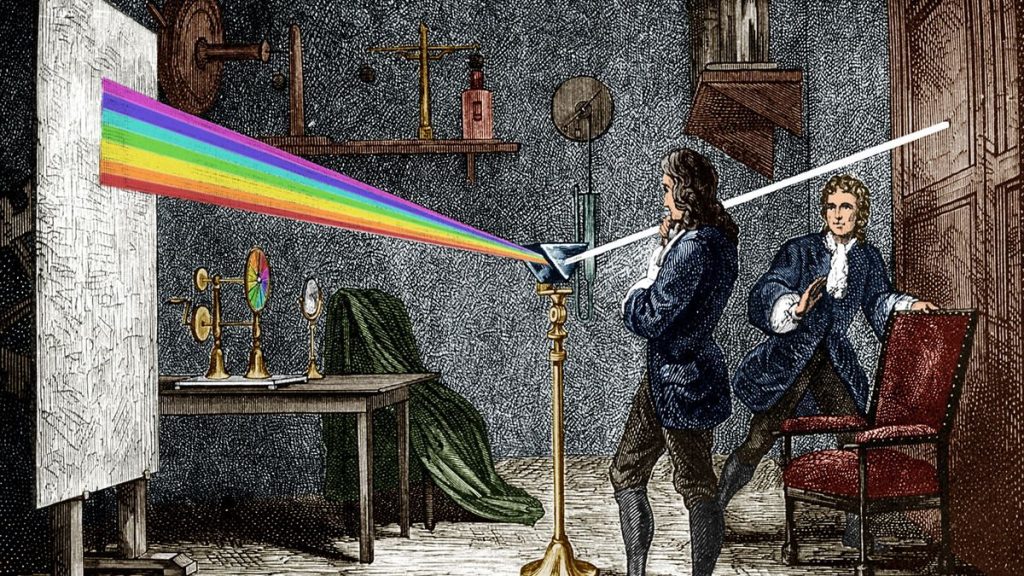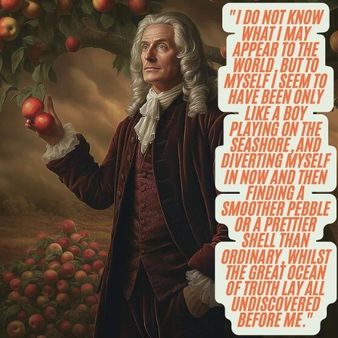
The Legacy of Isaac Newton: A Revolutionary Mind
Isaac Newton, one of the most influential figures in the history of science, is often regarded as the father of modern physics. His contributions not only revolutionized our understanding of the natural world but also laid the groundwork for many scientific advancements that followed. Born on January 4, 1643, in Wools Thorpe, England, Newton’s journey from a curious child to a towering intellect is a tale of innovation and discovery.

Early Life and Education
Newton was born into a farming family, but his early life was marked by tragedy; his father passed away shortly before he was born, and he was raised by his mother. As a student at the King’s School in Grantham, Newton showed an early interest in mathematics and science. He later enrolled at Trinity College, Cambridge, in 1661. The university experience transformed him, exposing him to the works of prominent thinkers such as Galileo, Descartes, and Kepler. The closure of Cambridge during the Great Plague of 1665 forced Newton to return home. This period of isolation proved pivotal; it was during this time that he formulated many of his groundbreaking ideas.

“The rays of light are not colored, but the colors arise from the nature of the surfaces they strike.”
Major Contributions
Optics: His experiments with light and prisms led to the discovery that white light is made up of a spectrum of colors. He also invented the reflecting telescope, which improved the clarity of astronomical observations.
Laws of Motion: Newton formulated three fundamental laws that describe the relationship between a body and the forces acting upon it, establishing the principles of classical mechanics.
Universal Gravitation: He proposed that every mass attracts every other mass in the universe, a concept that explained both terrestrial and celestial phenomena.

Philosophical and Theological Views
Newton’s scientific work was deeply intertwined with his philosophical and theological beliefs. He saw the universe as a grand design created by a divine intelligence. His writings often reflected a worldview in which science and faith coexisted, with many of his later works focusing on biblical chronology and theology. Newton’s belief in a rational, ordered universe was rooted in his conviction that understanding the natural world brought one closer to understanding the divine.
Later Life and Legacy
Newton’s later years were marked by his appointment as the Lucasian Professor of Mathematics at Cambridge and his eventual election as a Member of Parliament. He also served as the Warden and later Master of the Royal Mint, where he took on the task of reforming England’s currency.
His influence extended beyond his lifetime, impacting various fields, including physics, mathematics, and astronomy. Newton’s methods of empirical observation and mathematical formulation became the standard for scientific inquiry, leading to advancements during the Enlightenment and beyond.
Newton passed away on March 31, 1727, but his legacy endures. He is commemorated through various accolades, including the Newton crater on the Moon and his portrait on the British £20 note. His principles continue to be taught in classrooms worldwide, demonstrating the enduring relevance of his work.

Conclusion
Isaac Newton’s brilliance lay not just in his individual discoveries but in his ability to synthesize knowledge from diverse fields. His work reshaped our understanding of the physical world and established methodologies that are foundational to modern science. As we continue to explore the complexities of the universe, we owe much to Newton’s pioneering spirit and intellectual rigor. His legacy is a reminder of the power of curiosity, the importance of empirical inquiry, and the endless possibilities of human understanding. In every scientific advancement, we can trace a line back to the revolutionary ideas of Isaac Newton, a true giant in the history of human thought.















